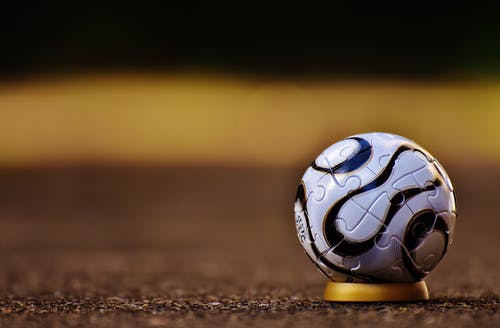If you want to learn, find the people who know more than you do and pick their brain. Here’s a shortcut to get you started.
I’ve put together a list of 10 betting techniques and tactics that I’ve learned from better sports bettors:
1 – Winning Football Teams Control the Line of Scrimmage
When evaluating football games, everyone focuses on skill position players like the quarterback, running back, and wide receivers. What winning sports bettors understand is the team with the best offensive and defensive lines tend to control who wins the game.
Defensive lines directly affect the opposing team’s yards per carry and yards per pass attempt as well as sacks and quarterback pressures and hurries.
Offensive lines make or break quarterbacks and running backs. The best running back in the world can be completely negated by a poor offensive line. A great quarterback who doesn’t have time to throw is no better than a poor quarterback.
Start studying and tracking the performance of offensive and defensive lines and you’ll start winning more games.
This advice works equally well for both NFL and NCAA games.
2 – NCAA Lines are Weaker than Pro Lines
Sportsbooks work with a limited number of resources. As a result, they have to concentrate on the areas where they can make the most money.
More money is placed on pro sports than college sports. As a result, you can find weaker lines by betting on NCAA games than pro games.
This is especially true during football season and the regular basketball season. The NCAA basketball tournament is wildly popular and heavily bet. As a result, this advice may not be true on tournament games.
Most NFL lines are as tight as the sportsbooks can make them. The books do whatever they need to set good NFL lines, because bad lines can cost millions of dollars. The biggest college football match ups are also usually pretty tight.
But even so, they aren’t as good as most NFL lines.
When you move to the mid-sized conferences and smaller, you can find weak lines on a week in and week out basis.
You can use the same advice for regular season college basketball. Most books won’t spend any time setting lines for a Mid American Conference (or similar size conference) match up–they won’t see any serious action on the game.
3 – Never Forget Home Field Advantage
Home field advantage is one of the areas where it can be tricky to convert your knowledge into profit. Everyone, including the sportsbooks, knows that home teams win more often than visiting teams.
They also build this into the betting lines.
The area where you can find value because of this is when the sportsbook builds too much of a home field advantage into their lines.
In order to start taking advantage of this, you need to become a true student of whatever game you bet. There isn’t a simple system to see when the books make mistakes.
The more you study teams and players and understand how the books set their lines, the more you will start seeing opportunities.
4 – How Far a Team Travels is Important
Teams that travel from coast to coast or other long distances don’t play as well as they normally do.
Does this seem like common sense?
Start tracking it.
You’ll soon find opportunities to place profitable bets.
5 – Expected Value Is Everything
Winning sports bettors–and gamblers in general–look for places where they have positive expected value. They work to put their money on the line in these situations over and over. They understand they won’t win every time. But if they have a certain chance of winning in the long run, that percentage will play out.
Here’s an an example from poker:
A poker player estimates that he will win at least 70% of the time he has pocket aces and can get all in before the flop.
In a regular ring game, the poker player is going to get all in with pocket aces before the flop every time he has the opportunity–in the long run he will make money.
Even if he loses this time and the next three times, in the long run he will make money.
Look at 100 hands where he has an average of $100 in the pot. He will lose $100 30 times, for a total loss of $3,000. He will win $100 70 times, for a total win of $7,000.
$7,000 in winnings and $3,000 nets a $4,000 profit.
Take this a step further. Every time he can enter this situation, it’s worth an average of $40 to him. $4,000 divided by 100 times.
That average $40 won per hand is called “positive expected value”.
Sports bettors constantly seek the exact same situations. In poker, it’s easier to determine percentages.
But the more times a sports bettor can place a bet with an expected positive value, the more money they will win.
6 – Focus on Winning Money–Not Games
Sports bettors can get caught up in winning a certain percentage of their games.
But it really doesn’t matter how many games they win.
The only thing that matters is how much money they win.
Here’s an example:
You bet on four games with money on three favorites against the spread and one underdog on the money line that pays $1,200 against a $100 wager. You lay $100 on the underdog money line and 4,110 on each of the spread games.
Would you rather win the three spread games and lose the money line bet?
Or would you rather win the money line bet and lose the three spread bets?
Winning the money line bets gives you a total win of $870.
Winning the three spread bets only profits $200.
7 – Work or Lose
You can either work hard at becoming a better sports bettor or you can lose.
This is the most valuable advice on the page. It’s the advice most professional sports bettors can tell people–because they don’t have to worry about most people taking that advice.
Most people are lazy.
But if you want to beat the sportsbooks, working hard is your only choice.
8 – Systems Find Opportunities
Most betting systems are worthless. I don’t know how many roulette or craps systems I’ve seen advertised over the years that were nothing short of scams. You can’t find a system to beat a game with a fixed house edge.
But you can develop systems to help you beat the sportsbook.
Many professional sports bettors have systems they’ve developed over the years that help them find games where they can place wagers with an edge. They find trends and start tracking them until they prove the trends are real. Once they have real trends, they figure out how they can be easily found and exploited.
Most current analysis is done with the help of computers and spreadsheet programs, but you can often do the same things on paper.
The systems that work aren’t found in books or online. For the same reason you wouldn’t share your winning systems, the pros with working systems use them to make money and protect them at all costs.
To advance to the next level of sports betting, you need to start developing and testing your own systems. Building systems is filled with failure. So don’t get discouraged easily. Even if you test 100 systems that fail to find one that works you will profit from it in the long run.
9 – There Is No Try
I read this recently from a marketing guru. But my friend reminded me it was also a quote from Yoda in Star Wars.
With most things in life, there is no try. You either do or don’t.
The example I read was you either ate the sandwich or you didn’t.
You didn’t try to eat it.
If you’re going to be a winning sports bettor, you don’t “try” to become one. You do whatever it takes. You work however hard it takes to start winning.
Or you give up now.
It’s not easy to beat the sportsbooks. But it can be done.
People figure out winning systems and find new trends they can exploit every day.
Are you willing to do what it takes to beat the sportsbooks?
Or are you fooling yourself?
10 – Paying Less Vig Is the Same as Winning More Games
Vig is the fee you pay the sportsbook to place bets. You only lose your vig on the bets you lose.
But it’s the difference between what you have to risk and what you stand to win.
The most common vig is 10%. Most bets are based on 11/10 or 110 to win 100.
When you lose, the sportsbook keeps your entire wager–including the vig.
But when you win you get back your original bet–including the vig.
But you win 10% less.
sportsbooks generate a guaranteed profit. Here’s how they try to do it:
They balance the number of people who bet on each side of a game.
When two people bet opposite sides of the same game for $110 to win $100, the sportsbook is guaranteed to win $10 from one of the two players. They pay the winning player with the other $100 the losing player wagered.
Want to know what it takes to break even as a sports bettor paying a 10% vig?
You have to win at least 52.3% of your bets against the spread.
If you can place bets at $105 to win $100, you only have to win 51.2% of your bets against the spread to break even.
A 1% difference in sports betting can easily be worth millions of dollars over your lifetime.
Here’s a simple example to show the difference:
If you place a million dollars a year in sports bets and win 52.3% of the time, you break even–if you’re paying 110 to win 100.
But if you maintain the same winning percentage and only pay 105 to win 100–your profit for the year is $22,150.
Multiply that by 10 if you place $10 million in bets during the year. All of a sudden you made $221,500 in profit instead of breaking even.
Your first job building a profitable sports betting career is learning how to win as many bets as possible, but finding places to place bets at a reduced vig is a close second.
Conclusion
Use the techniques listed above to shorten your path to profitable sports betting. You can’t always use shortcuts. But the ones here will help you no matter how much sports betting experience you have.



